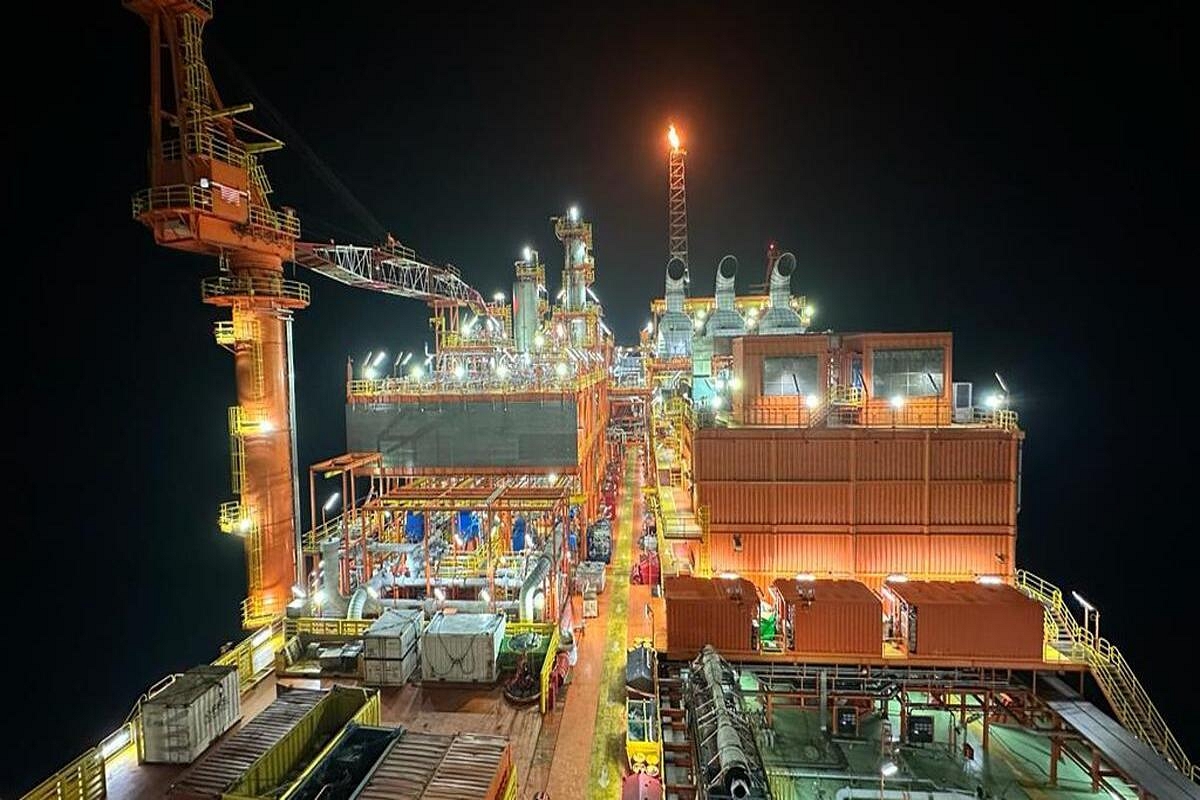Infrastructure
PM Modi Flags Off First Crude Oil Tanker From ONGC Krishna Godavari Deep-Water Block

ONGC's deep-water KG-DWN 98/2 block in the Krishna Godavari basin.
In a major milestone for India’s energy sector, Prime Minister Narendra Modi on 2 March flagged off ‘Swarna Sindhu’ carrying the first parcel of crude oil from Oil and Natural Gas Corporation's (ONGC's) recently commissioned Krishna Godavari deep-water project.
The oil tanker will carry the crude oil from the Bay of Bengal deep waters to Mangalore Refinery and Petrochemicals Limited (MRPL), a subsidiary of ONGC.
The state-owned oil major had commenced oil production from the deep-water KG-DWN 98/2 block in the Krishna Godavari (KG) basin off the Bay of Bengal on the Kakinada coast on 7 January.
The field is producing some 12,000-12,500 barrels of oil per day currently, using a floating production and storage offloading (FPSO), deployed in water depth of over 430 metres.
The extracted oil is stored on the FPSO, and once it reaches a critical level, it is transferred to a ship, which carries it to a refinery on the coast for processing into fuels like petrol and diesel.
The FPSO unit, Armada Sterling V, has been designed, engineered and is being operated by Shapoorji Pallonji Energy Private Limited (SP Energy) and is the largest floating installation in the Indian subcontinent.
Developed with an investment of over Rs 41,000 crore, the KG basin is one of the most technologically complex projects that faced unique technical challenges due to the difficult subsea terrains and non-human conditions at greater depths.
The peak production of the 98/2 field is expected to be around 45,000 barrels of oil per day and over 10 million metric standard cubic metres per day of gas.
At its peak production, this project will add 7 per cent each to India’s oil and gas production, thereby, helping reduce the dependency on crude and LNG import.
The project's success not only reduces India's annual import bill by up to $3.5 billion but also opens doors for Indian companies to tap into the $20 billion global FPSO market.
Support Swarajya's 50 Ground Reports Project & Sponsor A Story
Every general election Swarajya does a 50 ground reports project.
Aimed only at serious readers and those who appreciate the nuances of political undercurrents, the project provides a sense of India's electoral landscape. As you know, these reports are produced after considerable investment of travel, time and effort on the ground.
This time too we've kicked off the project in style and have covered over 30 constituencies already. If you're someone who appreciates such work and have enjoyed our coverage please consider sponsoring a ground report for just Rs 2999 to Rs 19,999 - it goes a long way in helping us produce more quality reportage.
You can also back this project by becoming a subscriber for as little as Rs 999 - so do click on this links and choose a plan that suits you and back us.
Click below to contribute.
Latest